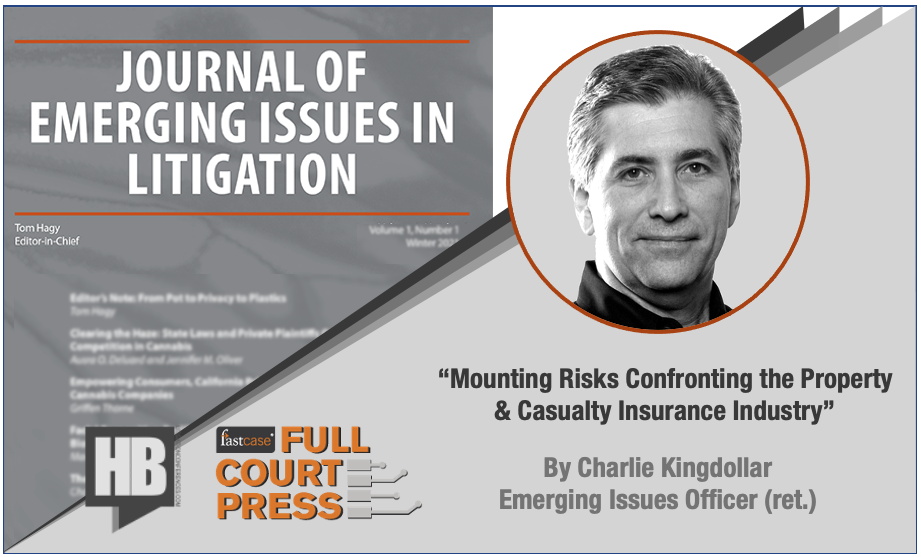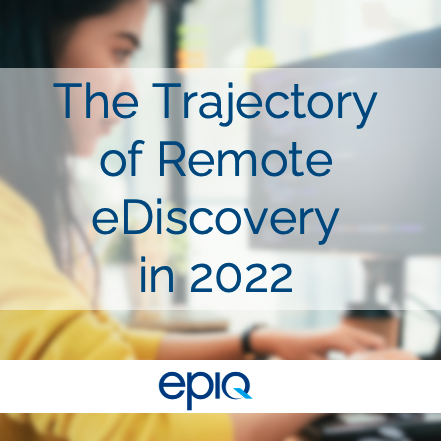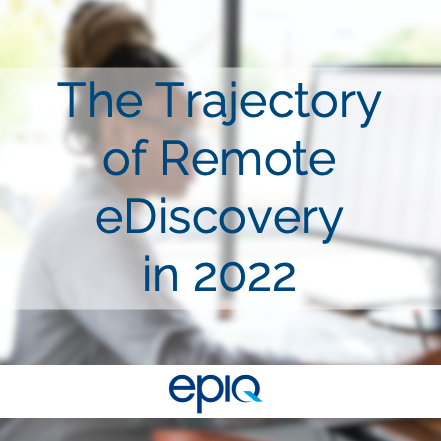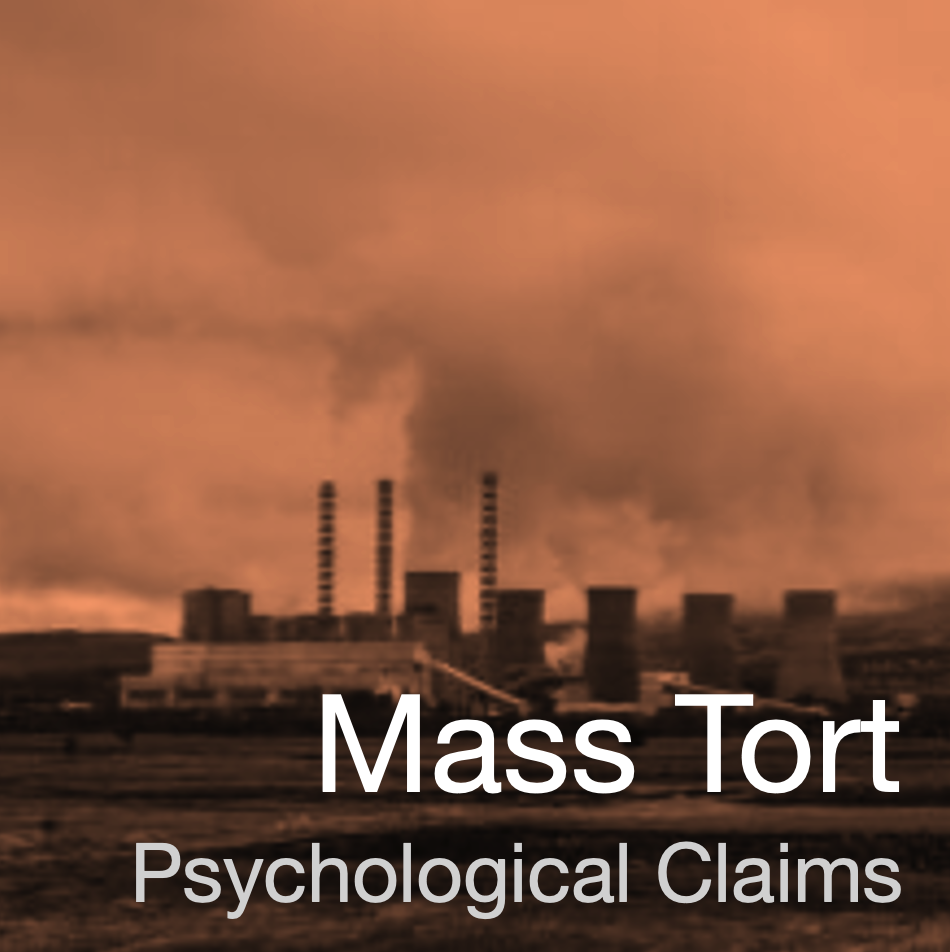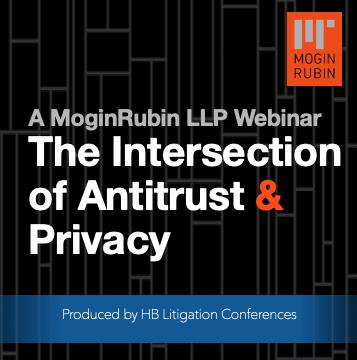Emerging Issues Facing the Property & Casualty Insurance Industry: What Has, What Is, What Will Be
Charlie Kingdollar was Emerging Issues Officer for GenRe where he worked for 40 years, much of which was spent monitoring hundreds of new risks at any given time. In this article, Charlie discusses risks that have long-since emerged but continue today, risks that are starting to reveal themselves, and risks just starting to appear on the horizon. Read or download his article published in the latest issue of the Journal on Emerging Issues in Litigation.
The Trajectory of Remote eDiscovery Review in 2022
Epiq presents a CLE-eligible webinar The Trajectory of Remote eDiscovery in 2022 Practical guidelines for planning the eDiscovery program for your firm or legal department based on the latest insights. Join legal industry analyst Ari Kaplan, Eric Crawley, Epiq’s managing director for global advanced solutions, Seth Eichenholtz, Director of eDiscovery at Mastercard, and Lora Ramsey, eDiscovery Manager at Walmart for a discussion about the current state of electronic discovery within corporate legal departments and the future of remote options in a post-pandemic environment. Kaplan will reveal – and the panel will discuss – findings from the Epiq-commissioned report based on the perspectives of 30 leading corporate legal eDiscovery professionals about the challenges, tactics, and best practices fueling change in this sector. Eighty-seven percent of the respondents reported that they handle some document review processes with support from their outside counsel. Sixty-three percent also utilize alternative legal services providers (ALSPs). With the near-universal deployment of remote reviewers during the pandemic, only 10 percent of the respondents reported seeing disadvantages. For many organizations, the document review process involves a combination of resources and is often driven by cost and risk. One respondent told us: “We want the lowest cost resource that offers the highest quality work, which is not always the outside law firm.” If you answer yes to any of these questions, this webinar is for you: How can my firm make the most informed decisions about our document review processes given the new wide acceptance of remote work? Should our litigation and investigative teams work with alternative legal service providers to conduct remote review? What are the benefits? What do our clients, namely corporate e-discovery professionals, think about remote review and the role of law firms in the process? On-Demand Registration What you get: 1 CLE credit (subject to bar rules). CLE codes will be announced. For questions write to CLE@LitigationConferences.com. 60 minutes of insights from experienced professionals. The complete PowerPoint presentation. Continued access to the complete [...]
Mass Tort Emotional & Psychological Claims
Emotional & Psychological Claims in Multi-Plaintiff Toxic Tort Litigation: What attorneys need to know about the scientific and medical aspects of these injuries. On-Demand | Recorded October 27th, 2020 ON DEMAND WEBINAR REGISTRATION Emotional injury claims often arise in toxic torts due to exposure to asbestos, mold, carbon monoxide, and environmental contamination, to name a few. And now, as large swaths of the nation are often engulfed in flame, what physical and emotional effect might manifest from prolonged smoke inhalation? Determining the validity of these injuries and any causal connection is difficult. It requires careful study by truly qualified experts often from various disciplines. When psychological harm exists, it can be debilitating. There is much an attorney should know when wading into these types of claims. How often is there a legitimate injury? What different types of injuries are there? What should attorneys know when working with or challenging psychological experts? How is causation proven or disproven? How are damages determined? Join our panel comprising a forensic neuropsychologist, an industrial and occupational physician, a forensic psychiatrist, and an experienced mass tort practitioner as they share their insights and experiences. Key Points Understanding the different types of psychological injury claims. Understanding the differences between objective injuries that are easy to identify and distinguish, versus subjective injuries such as pain or restricted movement. Distinguishing between real psychological injuries and malingering. Understanding the frequency of valid emotional injuries. Identifying the causal relationship between exposure and health effects. Knowing and understanding key medical studies. Understanding the evidence needed to prove or disprove claims. Evaluating damages, such as treatment costs and the extent of functional impairment. On Demand Webinar Registration Includes Nearly 75 minutes of insights from experienced professionals. CLE credit: 1+ (subject to bar rules). For CLE questions: CLE@LitigationConference.com The complete Power Point presentation. Continued access to the complete recording for later use. Answers to your questions via email to the presenters or write to HB and we will be sure to contact the speakers. ON DEMAND WEBINAR [...]
The Intersection of Privacy and Antitrust Webinar Now Available On-Demand on the West LegalEdcenter
Available as part of your subscription to The Thomson Reuters West LegalEdcenter®. Don't subscribe to the West LegalEdcenter? This webinar is still available directly from HB. Take it now! Questions for speakers Questions@LitigationConferences.com CLE questions CLE@LitigationConferences.com Check out the MoginRubin blog for more insights on antitrust and privacy law. What attorneys and companies need to know about the increasing interplay between these critical areas of the law. Highly publicized cases and investigations in the U.S. and Europe of big technology, e-commerce, and social media companies demonstrate how anti-competition laws are being used to scrutinize and challenge not only how these corporations conduct themselves in the marketplace, but the very core of their colossal success: the mass collection and utilization of user data. Are the privacy and antitrust worlds beginning to cross over? Or do they simply run parallel while addressing entirely different types of conduct? Whatever the answer, data is the raw material that drives the likes of Google, Facebook, Apple and Amazon, so how it is handled is a critical question when counseling clients on mergers and acquisitions. Moderator Daniel J. Mogin | Managing Partner, MoginRubin LLP Speakers Jennifer M. Oliver, CIPP/US | Partner, MoginRubin LLP Thomas N. Dahdouh | Director, Western Region, Federal Trade Commission Franklin M. Rubinstein | Partner, Wilson Sonsini Goodrich & Rosati Randi W. Singer, CIPP/US, CIPT | Partner, Weil, Gotshal & Manges Contributor Dina Srinivasan | Independent Researcher & Author of The Antitrust Case Against Facebook Dina was unable to present but we thank her for her content contributions. Agenda Who should regulate privacy violations in the U.S.? Which antitrust issues implicate privacy concerns? What role does machine learning play on the competitive landscape? What is big data really? How is it different from “data”? What are the elements of effective merger reviews? What are the appropriate remedies? What are “notice-and-choice” versus “harms-based” approaches? Plus answers to your questions. Send them to Questions@LitigationConferences.com.

